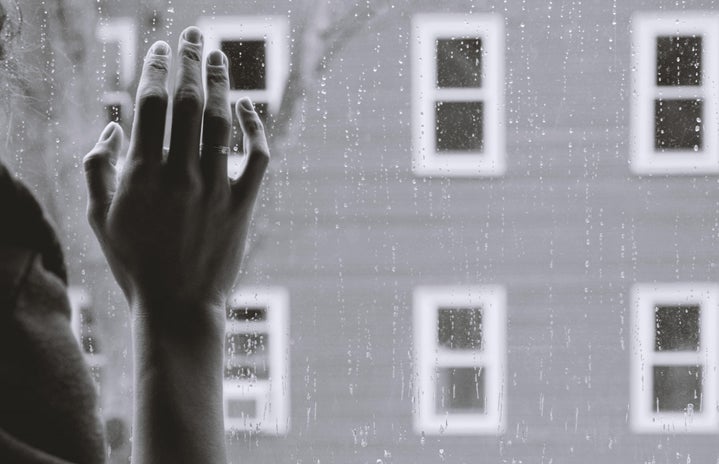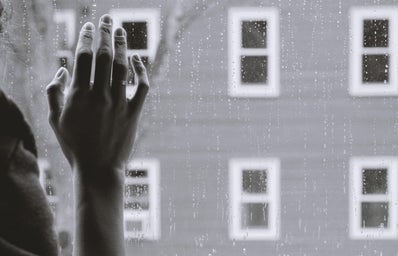Over this past year, I’ve written a lot about confronting loneliness as a young adult and reclaiming sovereignty as a source of liberation. It appears to be a simple concept: to allow yourself to exist solely and be seen, but I’ve struggled with this for a long time. As I’ve gotten older, I’ve begun to trace this insecurity back to this incessant need to constantly be involved in other’s lives.
I think it was in high school, the loneliest time of my life, and yet when I felt the strongest pull of shame I’ve ever felt for wanting to be alone. I remember the anxiety I’d feel walking from school back to the subway or the way I’d cautiously maneuver around other students to avoid running into friends. That walk to the subway was when I felt like I could breathe through small gasps of air. I remember walking an extra 10, sometimes even 20 blocks, just to hold on to that feeling.
I studied in New York City. It was so beautiful. It encapsulated everything I wanted for myself and yet, I couldn’t find a way to see myself there. In Seattle, the sadness was less obvious, clouded by the constant mundanity of it all. Since I was younger then, sadness could be fabricated as hunger or fatigue. But as I got older, I recognized this feeling, the disconnectedness of life. As a teenager, I’ve been sad about many things in my life, but the connection between it all is this fear of loneliness that I seem to sink into so easily.
This past summer was my first time living on my own with my sister. I had been in residence the year before and that was maybe a glimpse into independence, but in many ways, I still felt entitled to my childhood and the guidance that comes along with it. My sister was in and out of Canada so I spent many gaps of time living alone. I planned to fill the space with friends, sisters, visits to my father, calls home to my mom and work so as not to fall back into what I can now acknowledge as depression.
But then there was Maggie Rogers – who came to Toronto’s Echo Beach on July 31. It was a rescheduled date from March. Tickets had been sold out for months but there were resale tickets for people who couldn’t go anymore or maybe just changed their mind. I immediately texted my best friend in all caps begging her to go with me but she was busy and told me to go on my own.
“Live your best life,” she said. I’d never been to a concert on my own before.
For much of my life, loneliness was synonymous with insufficiency. Connected to Maggie’s music were so many moments of crumbling. It felt as though she had seen me fall apart over and over again throughout my high school years. Her songs Dog Years or Alaska are like relief. I feel weightlessness when I listen to her music; it reminds me of the resilience inherent in all of us.
I wanted to live in that even for just a night. And so I went. It was one of the greatest, most fulfilling, loneliest experiences I’ve had since entering college.
University and educational environments in general promote a culture of intense social interaction. And while many of these interactions are genuine and provide a sense of importance and structure in our lives as we transition into adulthood, they can also be agents of limitation to our internal development and relationship with ourselves.
As teenagers, we are processed to consume life through others, networking for life partners: platonic, professional and romantic. Then for those of us who attend a college or university, this culture is deepened and the consequences of not partaking in social life can mean the difference between succeeding or faltering into the outskirts of established social societies.
FOMO: fear of missing out. For many of us millennials and Gen Zs, FOMO extends beyond a fun college party or a night out with friends. It bleeds into our ability to sustain friendships, romantic relationships and careers.
Maybe it appears absurd to connect attending a concert of my favorite artist alone to maintaining an sense of belonging in this world. But the social realities of being recognized as lonely in this world, specifically as a young black woman tightly packed into a crowd of white, college-age people, are far more pronounced than we’d like to admit. Isolation is only seen as beautiful through a woman on film, grown and developed in her identity, adorned by jaw-slacked men and similarly beautiful friends, all who are still capable of existing alone. Because even alone, she is seen, acknowledged with life.
Though for women like myself, sometimes being alone means being veiled. I have been socially consummated to understand my existence as validated only through outside perspectives on my visibility. It’s such a complicated concept to dissect and often, the conversation is dismissed as questions for the world to answer. Loneliness is a human issue just as much as it is a fact of the world. Discussing the ways we teach children to acknowledge themselves and their place in the world is fundamental to understanding the anxiety and depression over-shadowing generations of lonely people.
I don’t want this article to end on a sad note because truthfully, going to see Maggie Rogers by myself was the best decision I could have made. Attending university has created some of the best moments in my life thus far, most of those moments being filled with people I love. So much of life is made worthwhile through others and that is such a beautiful reality to acknowledge. We need others in order to live a life of substance and purpose.
But, we also need time with ourselves in order to appreciate and understand what others give to our lives. This loneliness should not be a product of shame but instead a normalized emotion and action with no connotation besides an element of humanity.
“Of all that is shifting
And shaking my system
I know your rhythm
And I know, I know, I know, I know
That I’m the one that loves you
Oh, and I’m the one that loves you” – Dog Years by Maggie Rogers



